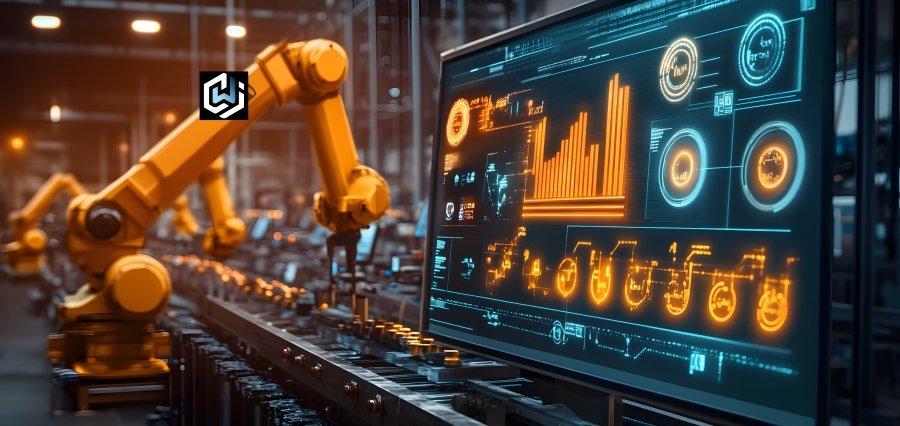Auto Tech
Indian industrial economy is rapidly transforming with game-changer potential of automation technologies. It is a wake-up call to the capacity and potentiality of ‘future automation India’ and, on the whole, the auto tech industry that prompts a country to ride on the recent developments towards reversing its manufacture, transport, and service segments. This automation stampede, fuelled by government initiatives, technological progress, and expanding home market, is a whole gamut of growth and transformation. This article explores the top trends and developments influencing the trajectory of automation in India’s auto tech industry, focusing on the mind-boggling potential of innovation and economic growth.
Government policies of India and the “Automotive Mission Plan 2026” are primarily responsible for automating the auto tech industry. Policies look to make India a global automobile production hub on the premise of keeping the focus on applying superior technologies and cheap manufacturing techniques. Future automation of India’s automobile industry is majorly dependent on robot assembly line incorporation, independent material handling systems, and AI-based quality check mechanisms. The shift to smart manufacturing not only automated the manufacturing process but also improved product quality and reduced manufacturing costs.
Self-driving vehicles and associated technology are possibly the most exciting space in ‘future automation India’. The government’s interest in green transport and smart mobility is fuelling record funding in autonomous driving technology and research. A few of the areas covered include uses of advanced sensor technologies, navigation based on artificial intelligence, and networked automobile platforms. Autonomous car power to transform India’s transport scenario is unmatched, addressing traffic congestion on roads, road safety, and concerns related to sustainability.
Electric vehicles (EVs) are arguably the most important driving force behind India’s automotive technology automation ecosystem. Government support of EV ubiquity, such as FAME (Faster Adoption and Manufacturing of Hybrid and Electric Vehicles), is driving a new EV-manufacturing and back-end technology ecosystem. ‘Future automation India’ in the EV space is constructing autonomous battery factory structures, intelligent charging infrastructure, and networked vehicle platforms. Implementation of automation in EV manufacturing is necessary to deliver economies of scale and decrease cost of manufacture and make EVs attractive and feasible to Indian buyers.
Implementation of Internet of Things (IoT) in automobile systems is also changing the Indian automobile technology industry. Networked automobile with sensor and communications modules is enabling real-time data gathering and analysis, which is contributing to enhanced vehicle performance, predictive maintenance, and enhanced drivers. IoT is also very much relying on ‘future automation India’. Intelligent traffic lights, intelligent parking, and real-time traffic monitoring are being mooted as smart transportation infrastructure, which is making Indian roads even simpler and safer.
Artificial intelligence (AI) leads the way in driving India’s need for auto tech industry automation. AI-driven solutions are being used across industries from autonomous driving to predictive maintenance to in-car personalized experience. Machine learning algorithms are processing gargantuan volumes of data to deliver maximum vehicle performance, anticipate component failure, and improve drivers’ safety. Incorporating AI into car systems is the future of innovation and differentiation prospects.
Emergence of new manufacturing technologies like additive manufacturing and 3D printing is also changing India’s automotive technology industry. They are enabling low-cost and lead-time production, as well as rapid production and prototyping, of complex auto parts. ‘Future automation India’ in production will make possible better and customized manufacturing. Deployment of these technologies is also driving innovation in material and design, which is the path to lighter, stronger, and more fuel-efficient vehicles.
Further automobile purchasing is driving the Indian automotive after-market growth as well. Indian avenues of automation are being developed with an expanding after-market. Computerized automobile diagnostic, repair, and servicing systems are becoming efficient and reliable while fixing automobiles as well. Web upgrading of automotive service sites is becoming more convenient and easy to implement in maintenance in automobiles as well.
The Indian government’s push towards skill development and training is the fulcrum around which the maximum can be extracted from the use of automation in auto tech. Industry-academia collaborations, technical education, and vocational training programs should be fostered to develop skilled manpower to service and operate newer automobile technologies. ‘Future automation India’s’ success hinges here.”.
Increasing sustainability issues are also conditioning the nature of automation in Indian automobile technology space. Electric and hybrid cars introduction, light-weight material adoption, and energy-saving process implementation are all trending toward a green car industry. ‘Future automation India’ will be defined by an approach based on sustainable manufacturing focus.
In brief terms, awakening of ‘future automation India’ size and scope as a speciality auto tech player means that a nation is prepared to take advantage of the transforming power of technology. Visionary government policies, speedy adoption of AI, IoT, and frontier manufacturing technology, and increased emphasis on sustainability are driving record growth in the auto value chain. Though there may be constraints, the scope for innovation, development, and growth is very high. Proper usage of automation would be long way to make India world map car hub. ‘Future automation India’ rewards would be global.





